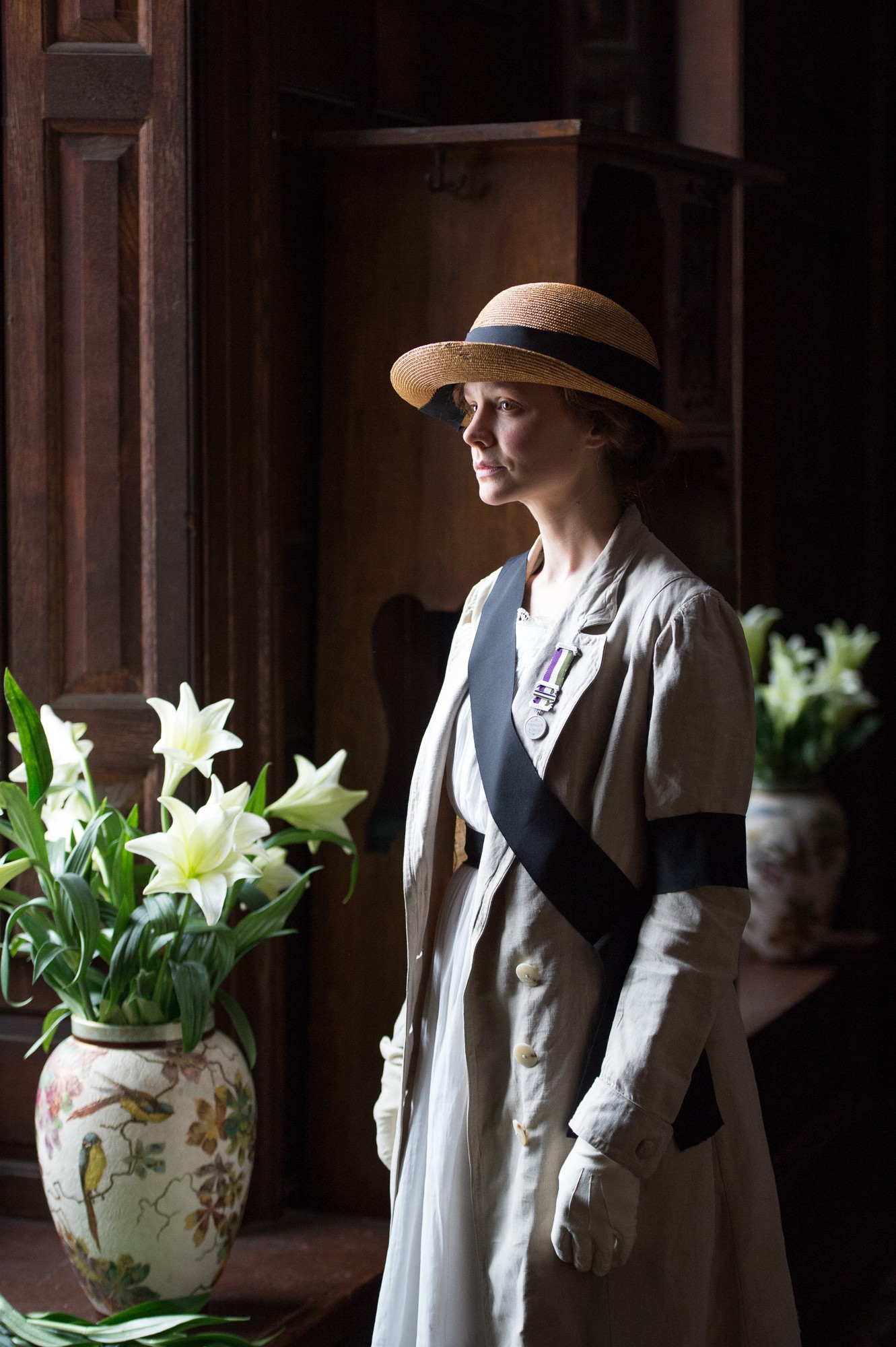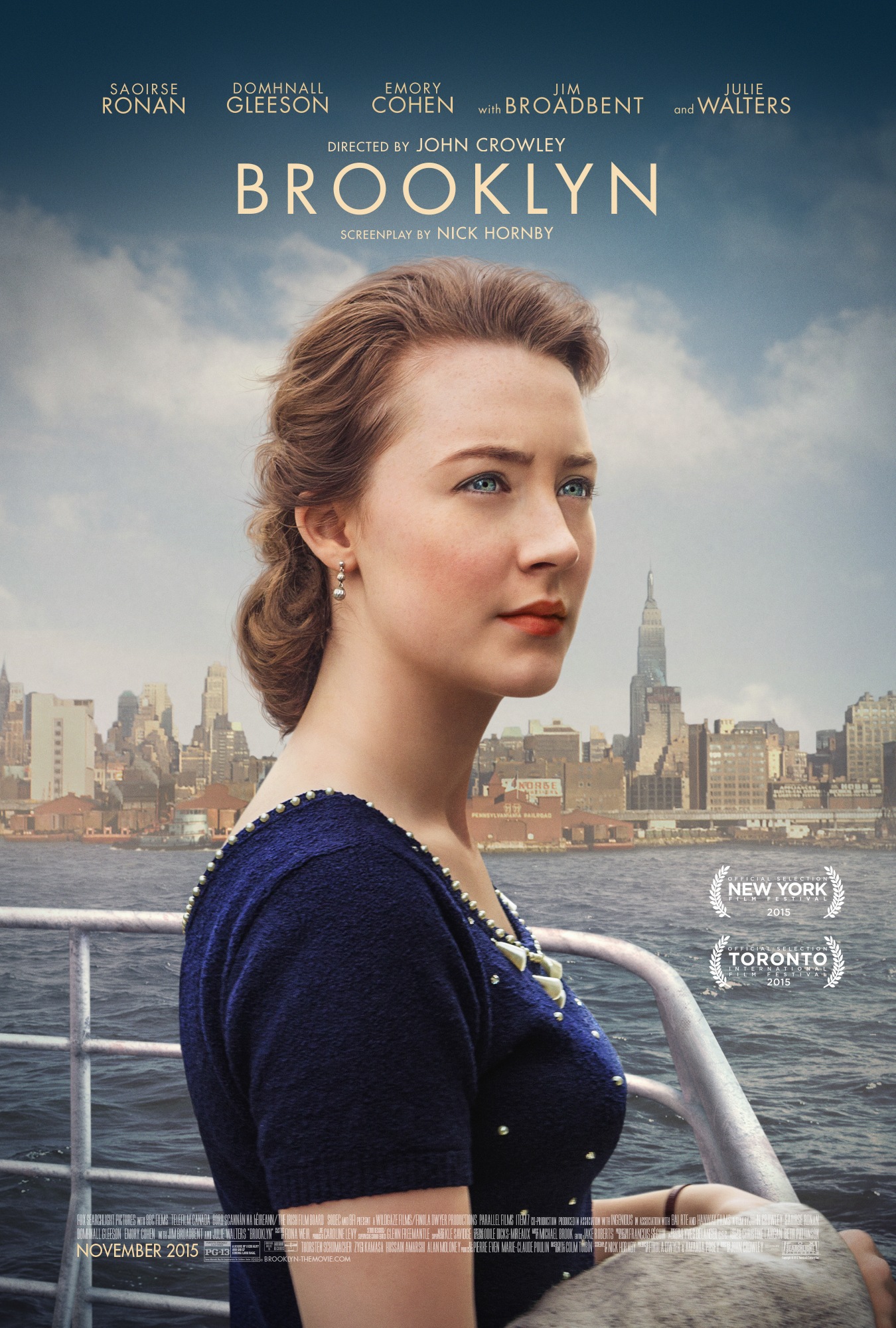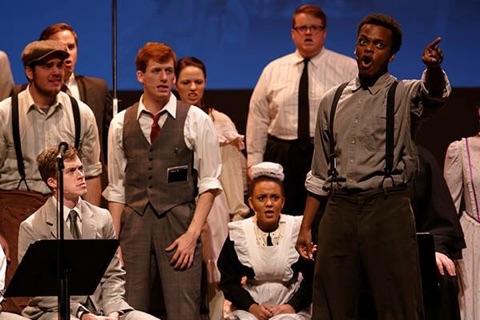The film “Suffragette” starring Carey Mulligan, Helena Bonham-Carter and Meryl Streep opened in theaters Friday, Nov. 6.
“Suffragette” is based on true events during the Women’s Suffrage Movement at its height in London of 1912. The film follows a fictional portrayal of a poor, laundry maid named Maud Watts, played by Mulligan, as she slowly makes the transition to accept the suffrage movement. She meets many women of different classes along the way who identify as suffragettes, or individuals who fought for women’s voting rights.
Edith Ellyn, played by Bonham-Carter, is a middle-class pharmacist, and upper-class, real-life fugitive leader of the suffrage movement Emmaline Pankhurst, played by Streep, help Watts throughout the film. These women, among many other real women depicted in the film help bring Watts into the fight as tactics become more militant against the police and government.
Star of the film, Carey Mulligan, hosted a conference call with many colleges and universities across the country and answered questions about the production of the film. Mulligan recalled the countless hours of research put into her role. Along with reading diaries of suffragettes and their letters from prison (many suffragettes were imprisoned for weeks at a time to years for their efforts), one inspiration for Maud came from a real suffragette of the time Hannah Mitchell. Mulligan came across Mitchell’s autobiography, “The Hard Way Up,” while researching in the archives of the Museum of London.

“I had wanted to find an account from a working-class woman as a way into the character, beyond the prison diary or letters from prison – as extraordinary as those were to read. Hannah came from nothing and has a fortnight of formal education. Her discovery of the Suffragette movement came through meeting other women, in many ways like Maud’s experience,” Mulligan said.
Mulligan also mentioned how hard it was to get into the role due to how emotional it could get especially during the scene where Watt’s son, George, is given up for adoption right in front of her.
“We didn’t want to do too many takes of the scene. He [the child actor] was so invested emotionally even at the table read he would cry.We would switch him with a stand-in so he wouldn’t get too tired.”
Suffrage and suffragettes barely receives a mention in school textbooks in England. “That was a part of history that England has tried to erase to some extent,” Mulligan said.
She also talked about how much more of a feminist she has become since acting in “Suffragette” and how it is a reminder of how far society is from complete gender equality. The film also made her realize how hard fought the right to vote was and how stupid it is not to if one has the opportunity.

A great question was asked in regards of how many women were on set (the director, screenwriter and producers are women) and how different it would be if men made it.
“I don’t think a man would have made a movie on Women’s Suffrage to be quite honest,” Mulligan said.
This movie comes at an important time in society as more and more people around the world begin to realize the gap inequality among the genders including in Hollywood.
Mulligan hopes that the film will inspire everyone who sees it to become proactive in the fight for equality.
“Suffragette” is a moving story on the fight for the simple right to vote but sheds light on so many other topics on gender inequality. Viewers will be glued to the screen and alert as they follow Maud Watts, Edith Ellyn and the elusive Emmaline Pankhurst through their efforts for change.
“Suffragette” is out in theaters now and is rated PG-13.



